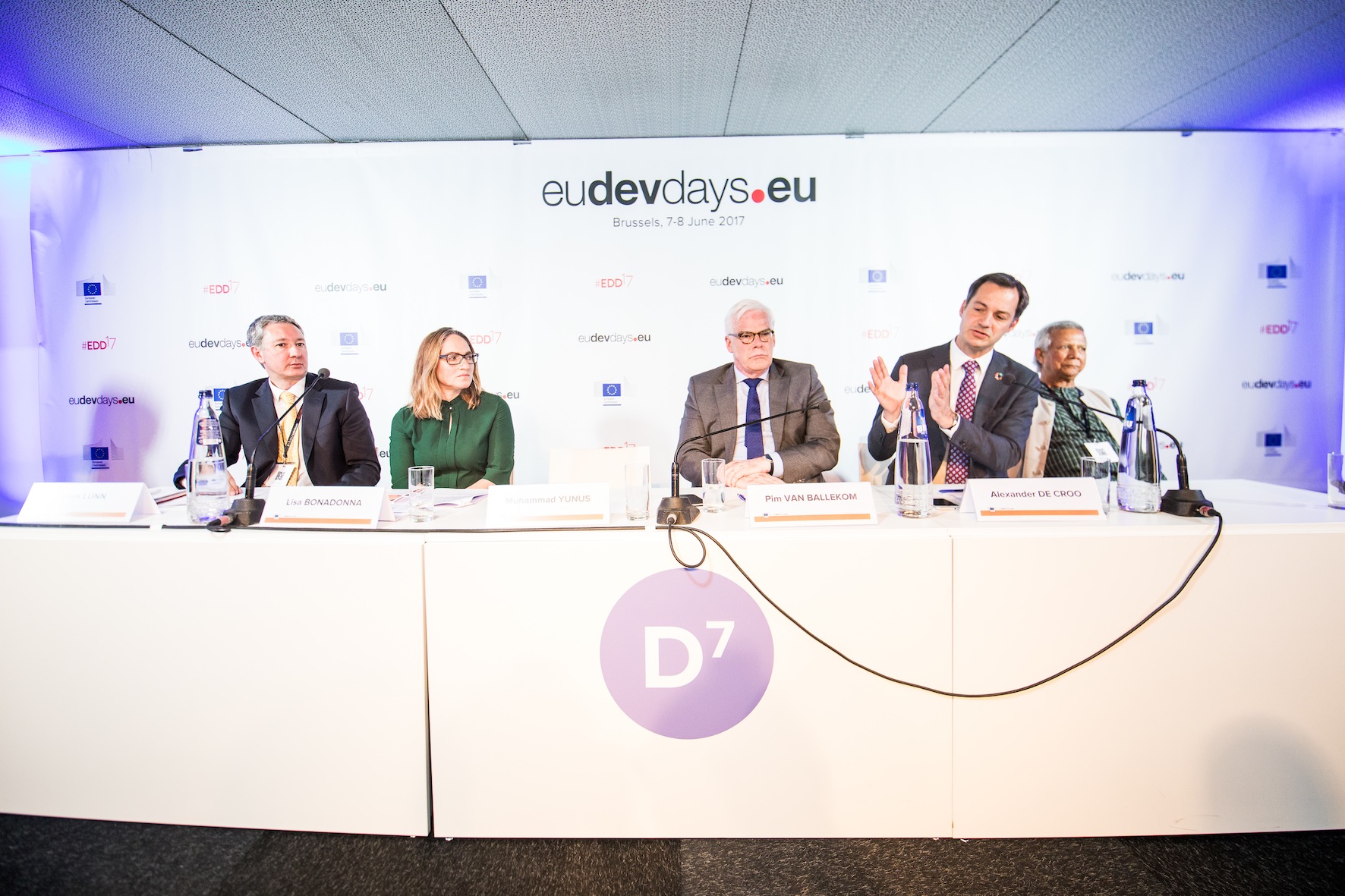
Four million people could gain access to healthcare and personal bank accounts when solar-powered stations financed by the European Investment Bank (EIB) are installed in rural sub-Saharan Africa, the institution said at European Development Days in Brussels today.
The EIB, a bank funded by member states of the European Union, is providing €24 million of long-term investment to the project set up under mobile company group Africa Mobile Networks, which aims to install up to a thousand solar-powered mobile bases in the Democratic Republic of Congo and Cameroon.
The vehicle used to finance the project is the African Caribbean Pacific Investment Facility, a revolving facility managed by the EIB that matches high financial risk with high-level impact for local people.
Heike Ruettgers, head of development and impact financing at the EIB, told Development Finance that measuring the project’s impact in accordance with its financial risk requires the institution to answer “to what extent access to telecommunications is really increased” in its target regions.
More than 60 percent of planned coverage – around 750 of the 1000 towers under construction – will be located in conflict-prone areas of the eastern Democratic Republic of Congo, such as North and South Kivu. Michael Darcy, CEO of the EIB, said communities in these regions are “dangerously cut-off” from security information that can improve the quality of lives in stressful circumstances.
According to Pim van Ballekom, the EIB’s vice-president, African cities have benefitted from increased access to mobile phone coverage in the last ten years, though two thirds of Africa’s poorest still cannot use mobile devices effectively to gain economic and social opportunities.
“This new scheme will expand access to commerce and crucial services that transform daily life in Cameroon and the Democratic Republic of Congo, including supporting the economic empowerment of women and access to health services online,” Ballekom added.
Jim Lunn, vice CEO of Africa Mobile Networks, told Development Finance the project already shows signs of attracting the private sector to its targeted rural areas. He said several technology firms at the conference in Brussels expressed willingness to work in the region as a result of the increased coverage local people can expect to receive.
“Having the mobile network there enables them to deploy their technologies to these villages to offer additional services because they now have a way of monitoring and maintaining and billing in those places,” he said.

